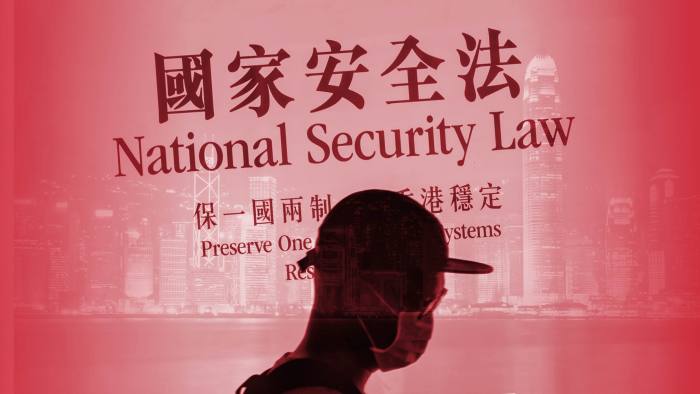The first person to be tried under Hong Kong’s new national security law was convicted of inciting secession and terrorism over an incident that occurred during a protest against the very law by which he was charged.
Tong Ying-kit, 24, was driving a motorcycle when he collided into a group of police officers. He was carrying a banner that read, “Liberate Hong Kong, revolution of our times.”
It is unclear whether the crash was intentional or if he was distracted by a police shield thrown in his direction, but officials said the slogan “was capable of inciting others to commit secession” and described his actions as a “deliberate challenge mounted against the police.”
A history professor who testified for the prosecution described the slogan as a ‘call for regime change’ used specifically when a territory seeks freedom from an enemy.
Tong pleaded not guilty and said the slogan itself was not a call for secession. His lawyer said it was impossible to prove the lad was inciting secession simply by carrying the slogan. Protesters widely used the slogan during the 2019-2020 protests.
The phrase “Liberate Hong Kong, revolution of our times” was coined by Edward Leung, an activist for Hong Kong’s independence who ran for office in 2016. He received roughly 15% of the vote during the New Territories East Legislative Council by-election. But he was blocked from participating in the Legislative Council election later that year due to his political views.
—
Last summer, China unlawfully imposed a national security law on Hong Kong.
The law gave its police increased authority to prosecute crimes relating to terrorism, secession, subversion, and collusion with foreign powers.
“This draconian law is so vague it prevents anyone from knowing how and when they might transgress it and has consequently had an instant chilling effect across the territory,” reports Amnesty International.
The law, passed just weeks after it was introduced, was a response to months of pro-democracy protests in Hong Kong. It was widely regarded as the beginning of the end for the city as a pseudo-independent territory.
Dozens of journalists and activists have been detained or jailed since the introduction of the law, including most of Hong Kong’s leading opposition politicians. China also made changes to the makeup of Hong Kong’s Legislative Council so that only individuals deemed “patriots” can hold office and forced the city’s last remaining pro-democracy newspaper out of business.
Thanks to the new law, Tong was in custody for more than a year before his conviction this week. He was denied a trial by jury and bail. The city’s pro-Beijing leader, Carrie Lam, appointed his three judges.
“This verdict is a sentence for free speech” that “sets a dangerous precedent of unfair trial,” notes Eric Lai. Lai is an expert in political lawyering who fights for the democratic development of Hong Kong.
Tong’s sentence has yet to be announced, though we can expect him to be behind bars for several years. The maximum penalty for his offenses is life imprisonment.
Sources:
Hong Kong Man Found Guilty in First Verdict Under China’s National-Security Law
First person tried under Hong Kong security law found guilty
Hong Kong’s national security law: 10 things you need to know
